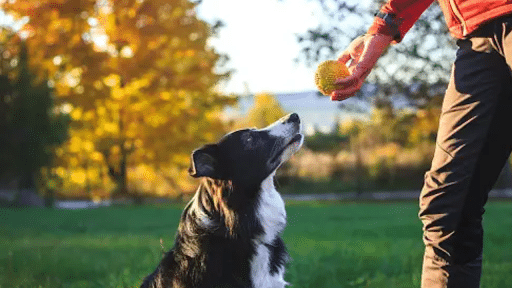Disobedient dogs can cause massive stress to dog owners. Nonetheless, obedience training can be a game-changer for our furry friends.
How, you ask? See it this way: You’re strolling through the park with your dog, with no fear of their unpredictable behaviour. Your well-behaved pup responds to your every command.
Well, this is what obedience training does to your doggo. It moulds your unruly pup into a well-mannered dogling.
Do you want to know more? Let’s rifle through the importance of obedience training for dogs below:
Why Does Obedience Training Matter?
You might think, “My dog is already a good boy/girl. Why bother with training?” Well, obedience training isn’t just about having a well-behaved dog (although that’s a fantastic perk!). It’s about building a solid bond between you and your furry companion.
When your dog understands what you want from it and can follow your commands, it builds trust and strengthens your relationship. Plus, it keeps your dog safe in potentially dangerous situations. Imagine your dog darting into traffic because it didn’t learn to “stay” or “come” when called. Scary, right?
Let’s learn more about the importance of obedience training for dogs:
- Building a Strong Bond
The beautiful bond between a dog and its owner lies at the heart of obedience training. It’s more than just teaching Rover to sit or stay—it’s about forging a connection built on trust and mutual understanding. As you guide your pup through training sessions, you’re not just teaching commands; you’re strengthening the foundation of your relationship. Plus, according to the Animal Humane Society, this bond extends beyond training sessions, creating a more harmonious household.
- Positive Reinforcement and Decision Making
Who knew that handing out treats could be so transformative? Positive reinforcement training teaches your dog essential commands and empowers them to make positive decisions. By rewarding good behaviour with treats or praise, you’re encouraging Fido to engage with their environment in a way that rewards them. This approach fosters a deeper connection between you and your furry friend.
- Safety and Socialization
Imagine a world where your dog responds instantly to commands like “come” or “stay.” With obedience training, that world becomes a reality! A well-trained dog is safer in potentially hazardous situations and more socially adept. Exposing your pup to different people, animals, and environments lays the groundwork for a well-adjusted and polite member of society. Obedience training can reduce aggressive or hostile actions, particularly important for families with young children.
- Mental Stimulation and Behavioral Improvement
Like humans, dogs need mental challenges to stay engaged and fulfilled. Obedience training provides the perfect outlet for their sharp minds, preventing boredom and destructive behaviour. Regular mental stimulation is crucial for a dog’s health and well-being, and training sessions offer the perfect opportunity to flex those mental muscles.
- Confidence and Stress Reduction
Have you ever seen a dog strut their stuff with an air of confidence? That’s the magic of obedience training at work! By exposing your pup to various experiences in a controlled manner, you’re helping them build confidence and reduce anxiety in new situations. This newfound confidence allows dogs to interact more calmly with other dogs and people, making every outing a breeze. And for you, a well-trained dog means less stress and worry, as you can trust your furry friend to behave appropriately in any situation.
Getting Started with Obedience Training
- Start Early:
They say you can’t teach an old dog new tricks, but we beg to differ! While puppies as young as six to seven weeks old can learn basic commands, there is always time to start training. Whether you have a playful pup or a seasoned senior, consistency and patience are key. Starting early sets the stage for a lifetime of good behaviour and mutual understanding.
- Keep It Short and Sweet:
Dogs have short attention spans, so keep training sessions brief—about 10-15 minutes at a time. And always end on a positive note!
- Use Positive Reinforcement:
Reward good behaviour with treats, praise, or toys. Positive reinforcement encourages your dog to repeat the behaviour in the future. Stay patient, consistent, and persistent—your efforts will pay off!
- Enroll in Classes:
Training classes are a great way to learn from professionals and socialise your dog. Plus, they’re a fun activity for both of you! Help from an obedience training facility can significantly enhance your dog’s basic obedience and behavioural training.
Closing Thoughts
To sum up, obedience training is essential to dogs’ general growth and welfare. It strengthens the relationship between dogs and their owners, guarantees security, stimulates the mind, and enhances social behaviour.
Raising a happy, well-mannered dog that is a pleasure to have as a member of the family requires continuous and positive training, which can be achieved either professionally or through a do-it-yourself method.
So gather your goodies and take your four-legged pal on a fascinating training journey.

